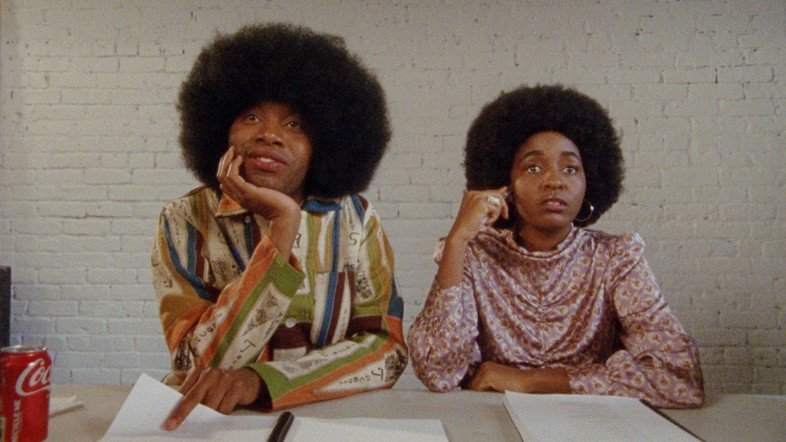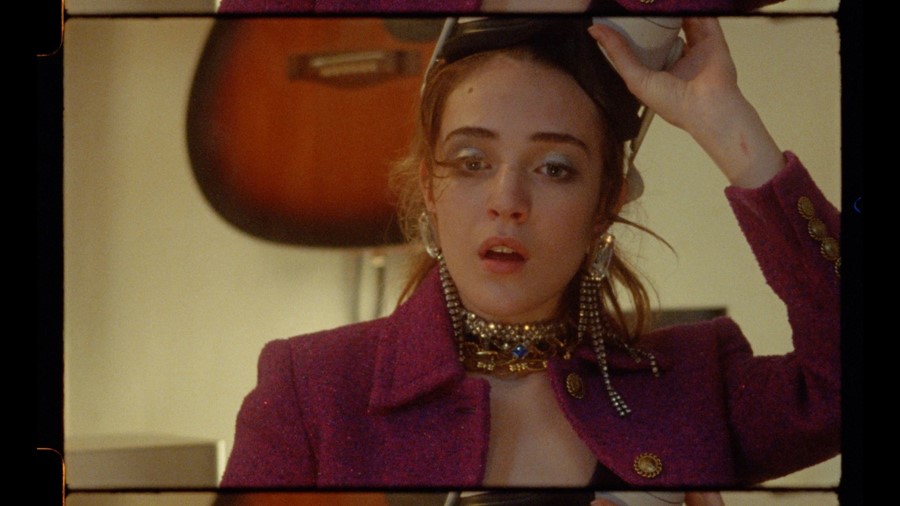The film, which also stars Jacob Elordi and Ayo Edebiri, is an eccentric trip down the American East Coast. ‘You have to tell the stories you want to tell. If everyone likes it, it’s probably not worth telling,’ says Ryder
The Sweet East is a prickly, picaresque movie you will love or hate, no in between. Catapulting former Dazed 100-er Talia Ryder further into stardom as a high-school student navigating a bizarro version of America, the button-pushing comedy gleefully dives into uncomfortable topics such as mass shootings, white supremacists, and Pizzagate. “I like that people have such polarised reactions,” says Ryder on a video call from New York. “A lot of times, a movie will make me so mad that I hate it so much, and usually if I hate it that much, I end up loving it. Maybe if people hate it so much, they’ll be happy it can elicit such anger in them.”
Directed by Sean Price Williams and written by Nick Pinkerton, The Sweet East follows Ryder in pretty much every scene as Lillian, a sly, shape-shifting protagonist who adapts to each mansplainer she encounters with an appropriate snarl or fake grin. On a school trip to Washington DC, Lillian escapes from a gun-wielding conspiracy theorist with the assistance of a punk activist (Earl Cave), only to find herself shacked up with a verbose neo-Nazi, Lawrence (Simon Rex). Next, she’s cast by a movie director (Ayo Edebiri) and producer (Jeremy O. Harris) to star alongside a vain actor, Ian (Jacob Elordi, doing an English accent), whose tabloid attention advertises her whereabouts to the murderous skinheads out for revenge. Somehow, the film gets even wilder and wilder.
“When I first read the script, I had this feeling throughout that she was going to kill herself at the end, or become President,” says Ryder. “She’s made enough enemies by that point that she’d want to be in control of her death, before someone else kills her.” While Ryder rewrote certain lines of dialogue because Pinkerton, she says, “isn’t a teenage girl”, she otherwise didn’t want to mess with the screenplay. “I’m conscious of when I get spoken over by men specifically in other things, but Lillian chooses to take the backseat in conversations. She likes to seem vulnerable in order to get information. People interpret her as weak, but that’s what she wants you to think.”
At 21 years old, Ryder, who’s speaking to me in late March, already boasts an impressive, varied filmography. Aged 17, she starred in the abortion-drama Never Rarely Sometimes Always, which she followed up with scene-stealing performances in West Side Story, Dumb Money, and Do Revenge; in Olivia Rodrigo’s “Deja vu” music video, she drives the singer to insanity. However, it’s really The Sweet East, a road movie in which Ryder has to conjure up comic chemistry with a swath of eccentric, increasingly dangerous oddballs, that most proves the actor is chameleonic, daring, and inherently watchable, especially with Williams’ gorgeous 35mm cinematography.
“The first time you see yourself in a movie, it’s really jarring,” says Ryder. “It’s good to be comfortable with what you look like, because you have to be comfortable in your own skin to do this. It’s nice being a character versus yourself.” When the opening credits of The Sweet East morph into a music video, it’s apparent that Lillian knows she’s in a film. “I’m very cautious about the roles I play,” says Ryder. “I understand the power of movies. I really liked the idea of playing a character that was in control in all of these situations.”
“The unique challenge of Talia’s part is that in fact a lot of it isn’t in the dialogue,” says Pinkerton over email. “Her character is very often being talked at by people who are desperate to impress her or impress themselves on her, and she’s often wary, vacillating, noncommittal... gives people just enough of herself to keep them on her side, but not more. So a lot of the performance is a matter of reactions, and a lot of the pleasure in the performance is watching the character think – seeing her carry on her own private conversation with herself while these various blowhards are yammering about one thing or another.”
Alongside directing, Williams is an influential cinematographer whose credits include Good Time, Heaven Knows What, and Her Smell. Pinkerton, meanwhile, is a renowned film critic. Together, they’ve produced a movie for young people – not just the casting, but in its raucous energy, nods to online culture, and an infectious, bratty attitude – that, unlike YA movies on Netflix, doesn’t care about likeability or positive representation. “The world is a pretty upsetting place sometimes,” says Pinkerton, “and there are a lot of people with dubious motives out there, and sometimes you're going to be the person with dubious motives, and if you’re going to negotiate all of that confusing, ugly stuff I think it’s probably helpful to have examples or reflections of it in art that can provide a little perspective and maybe even help you muddle through.”
Aware that Williams and Pinkerton are white, middle-aged men, Ryder requested to chat to the duo prior to signing on. Throughout our conversation, she refers to them as two of her best friends. “I’ve had bad experiences working with men before,” she says. “But Sean always gave me room to speak, and for questions he didn’t know the answer to, he’d say, ‘What do you think? I’m not Lillian.’” At times, Lillian is so aware of her surroundings, she practically breaks the fourth wall. “Lillian is stepping into whatever role she has to play to earn the knowledge of people older than her, but also to find her voice, which is special, because I feel like that’s what I’m doing,” says Ryder. “I want to make my own movies one day. While Nick and Sean put Lillian on the page, I’m the one who brought her to life.”

In fact, Ryder made a 20-minute movie – it’ll come out somehow, she’s not sure when – about her time at last year’s Cannes when The Sweet East premiered in Directors’ Fortnight. In addition to composing music, dancing (she started out as a 12-year-old in Matilda on Broadway), and writing poetry, she shot a short film in Vegas with friends that she plans to turn into a feature. “I really look up to David Lynch,” she says. “He captures feeling in a way that’s really exciting to me.”
Escalating at such a rapid pace, Ryder’s career is redolent of Lillian’s freewheeling navigation of opportunities in The Sweet East. So much so, the film ends on a title card with three words: “EVERYTHING WILL HAPPEN”. I remind Ryder that, four years ago, when she was selected for the Dazed 100, she emphasised that if anyone will fix the world, it’ll be Gen Z. “I do still think that,” the actor says. “There’s not a lot left for us unless we take things into our hands. More of my generation is deleting social media, turning off their phones, looking up, and trying to figure out what’s actually going on. There’s a lot of bullshit and propaganda that people are trying to feed us through our phones.
“The ‘EVERYTHING WILL HAPPEN’ quote is under the belief that there are infinite timelines with infinite outcomes. If every timeline will happen, why not make this the good one? Why not be the main character of your movie in this one? Why not throw away your phone in this one? Why not change the things that suck in this one?” However, while she’s deleted most of her social media, Ryder isn’t immune to checking Letterboxd. “It doesn’t hurt to know if people like you or not,” she says. “You have to make the stuff you want to make, and tell the stories you want to tell. If everyone likes it, it’s probably not worth telling that story anymore.”
The Sweet East is out in UK cinemas on March 29








